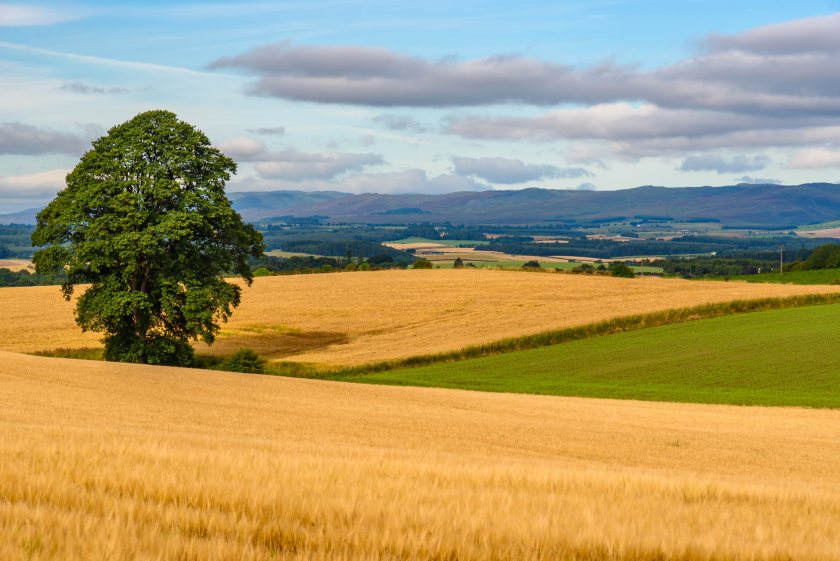
Farmers must not be forced to choose between tackling climate change and producing food, NFU Scotland has warned, as it welcomed a new report on the scale of investment needed to achieve net zero.
The Scottish Fiscal Commission’s latest assessment of climate change and fiscal sustainability was described by the union as a crucial step in acknowledging the financial reality of Scotland’s climate goals.
The report, it said, highlights both the fiscal challenges of funding climate action and the fact that farmers are already providing solutions — from improving production efficiency to cutting emissions, to locking up carbon through soil management, peatland restoration, and woodland creation.
NFUS Vice-President Duncan Macalister said the analysis demonstrates the enormity of the net zero challenge, but also the need for fairness.
He warned that “Scotland cannot reach its climate targets by placing a disproportionate burden on farming and food production without the significant financial backing required.”
While stressing that agriculture is central to the solution, Macalister cautioned that climate targets must not come at the expense of high-quality food production, which underpins Scotland’s food and drink industry and sustains rural communities.
The union emphasised that a just transition must balance environmental objectives with food security. Without long-term clarity, reliable funding, and regulations that are both practical and workable, NFU Scotland argued that the scale of change expected from farmers and crofters will be impossible to deliver.
To ensure climate goals are met without undermining food supply, NFU Scotland has set out a series of priorities. These include clear, multi-annual funding commitments to give farms and crofts the certainty they need to invest, as well as formal recognition of agriculture’s vital role in reducing emissions and capturing carbon.
The union insists that regulation must be fair, proportionate, and reflective of Scotland’s diverse farming systems. Crucially, future policies should be designed to strengthen food production, not weaken it, while still meeting environmental targets.
Macalister underlined that producers are willing to step up further, but cannot shoulder the costs alone. “Scotland’s farmers and crofters are ready to do more, but they cannot carry the cost of transition alone.
"With fair funding and balanced policies, we can secure climate action that delivers for the environment, for food security, and for rural Scotland.”
NFU Scotland confirmed it will continue to work closely with the Scottish Government and other partners to ensure climate targets are achieved without jeopardising the future of farming, crofting, and the many benefits they bring to the country.
